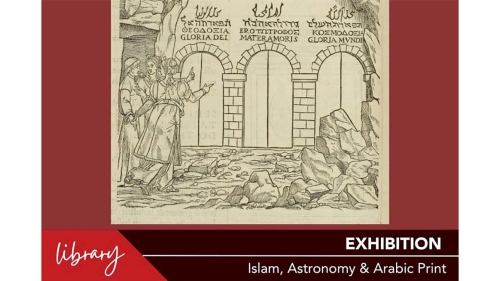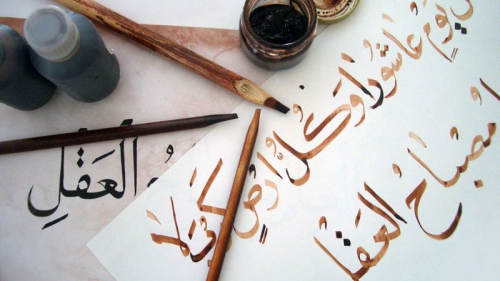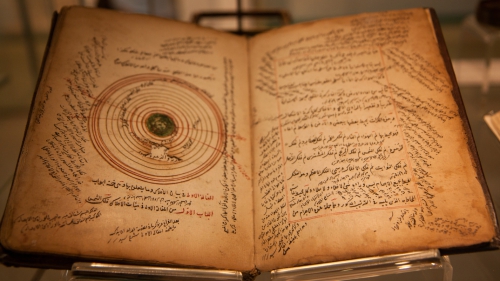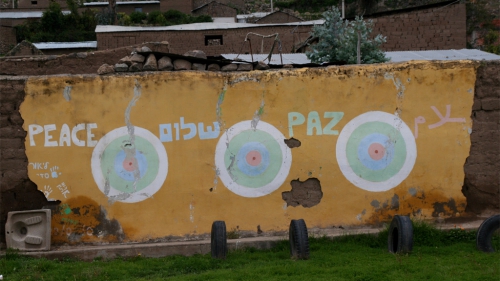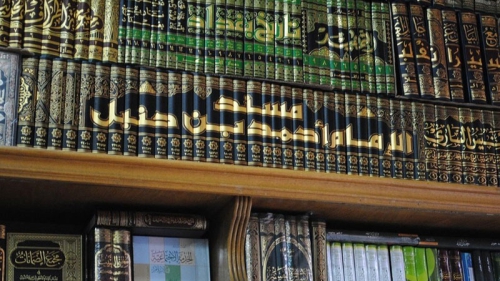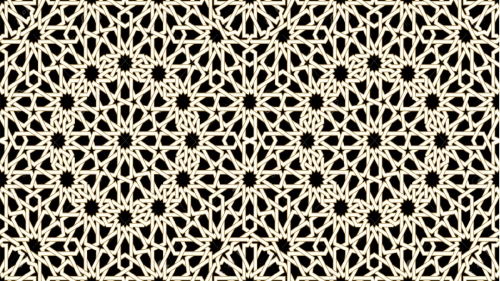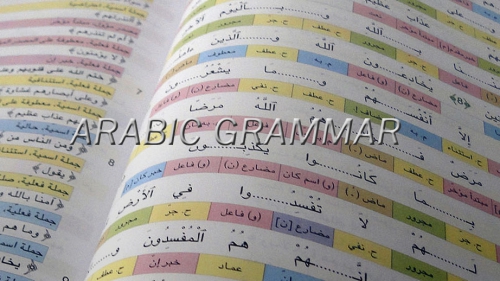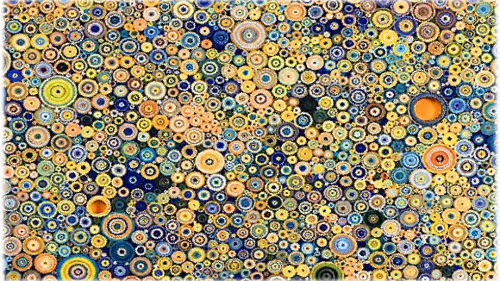English enriched by Centuries of borrowed Arabic words

For 1000 years, Arabic was the primary international language of commerce, scholarship and politics, much as English is in today's world. In fact, over the centuries English adopted many words that were either borrowed directly from Arabic, or were absorbed indirectly through other languages, especially Spanish.
Even today, Arabic still accounts for the greatest number of Eastern elements in English. The lists of examples that follow are only a brief sampling of the many more words available; perhaps some will surprise you!
No computer, nuclear plant or microchip design could have been possible without the words and concepts we know as algorithm, algebra, and zero - all of which come from Arabic.
The names of many musical instruments -- like lute and guitar - as well as a number of technical performance terms and styles, are also from Arabic roots.
Many names of familiar animals, plants, spices, herbs and drinks began as Arabic nouns: saffron, henna, camphor, cotton, apricot, lemon, lime, orange, tamarind, lilac, sherry, mango, coffee, artichoke, spinach, jasmine, ginger, tulip, lotus, shrub, giraffe, gazelle, cobra, zebra, cheetah.
If you have ever taken a chemistry course, the word chemistry itself originates with Arabic, as well as nitro, alkali, alcohol, calibre, antimony, arsenic.
In your household and daily life, you might easily run into Arabic words that are so common we never give them a second thought: shampoo, sofa, cable, atlas, magazine, pie, pajama, bungalow, mattress, sack, khaki, candy, caramel, jar, sherbet, sugar, syrup, cinnamon, ribs, silk, check, chatty, sandal.
And, as you might expect, Arabic is very present in slightly more exotic or emphatic English words and proper names: tycoon, carat, chess, checkmate, Sahara, almanac, rum, musk, sesame, tariff, cashmere, mummy, coral, sapphire, jubilee, jargon, thug, Satan, fake, jungle, alchemy, zenith, safari, talc, tartar, zircon, chiffon, amber, Bedouin, Ariel.
In military vocabulary, frequently-used terms like hazard, admiral, arsenal and assassin all owe their use to Arabic.
But reference books devoted to tracing the English words borrowed from Arabic are rare. Most were written some time ago and do not include contemporary scholarship or changes in our language. The most recent is more than three decades old -- Arabic Contributions to the English Vocabulary, by James Peters and Habeeb Salloum (1973). Two other useful, but dated, titles are: A History of Foreign Words in English, by Mary S. Serjeantson (1935) and Arabic Words in English, by Walt Taylor (1933).
Words are much like organic living creatures whose character and meanings evolve over time and circumstance. Those Arabic words that made it into English must have had a fascinating history, much of which has been lost over the centuries. It makes one wonder; Who used the original Arabic words and what were they like? How did these words first come to be spoken by non-Arabs? How many variations did they go through before appearing in English dictionaries? Why are some much easier to trace back to their Arabic roots than others? Linguists have answered some of these questions but there is still much more to be known. Here is a project worthy of far greater attention. Any takers?
For more information on Islamic Heritage please visit: www.islamichistorymonth.com
Related Suggestions
While the article has been posted on an Islamic info site, the writer clearly states the roots of many English words are ARABIC not Islamic. Yes, Arabic is the language of Islam; however, the Arabic language existed well before Islam.
Hope this clarifies Kam.
Jazak Allah khairan.
should appericiate any one who develops his languages .ARABS AND MUSLIMS should develop ARABIC not by borrowing but by knowing and using
the language
Our teacher, Imam Yousef Kavakcy, still mentions the english words that came from Arabic, in his Quranic Arabic Class. Some examples I remember, Mixer come from Miksarun or Aid come from EID.
I used these examples in Dawa to non muslims. I think every muslims should know these to revive their confidence to our glorius time of our Khalifat and ecouraging to our youngsters to follow Islam.
Jazzak Allah Khair
integration in indo-euro languages had its begining about 6000years ago when Indo-euro-arabian languages/culture had a shared origin in
mesopotamia and dispersal by the mideast farmers;
this is now well established; thus oldest arabic
then called akkadian appeared first; All this is
revealed in my book " politics of language; Urdu/hindi an artificial divide, now available
at amazon and barnes &noble. this integrates the
out of Africa evolution and neolithic farming with the mesopotamia the mother of Indo-euro-arabian civilisation; THe book exposes the language race theory "aryan/semitic" a german
fabrication of 18-19th cent,
ones? Wow! more proof of God's presence.
Salaams.
1- Algebra comes from the name of its father Mohammed ibn-Musa al-Khowarizmi
http://en.wikipedia.org/wiki/Al-Khwarizmi
2- Algorithm come the name of its father Mohammed ibn-Musa al-Khowarizmi
http://en.wikipedia.org/wiki/Al-Khwarizmi
You won't have any problem checking the validity of what I just said .
Peace .
Mohamed
I wonder whether you want someone really to answer you or you just want to argue. If you are really sincere to yourself you could easily find information in the net allowing you to get quite a good idea of that. Just read islamic history, especially the period in Spain. That will help you a lot. But if you are just there to argue, then probably no book will be of use to you as you already have built your opinion which could not change whatever the truth is.
The colonists of the past not only looted other countries of wealth and artifacts, destroying culture, education, traditions, and unity; they also took away knowledge without giving due credit. It is up to the new generations to rediscover their treasures and expose it to the world.
Mohammad
Can anybody answer my curiosity?
Kam






